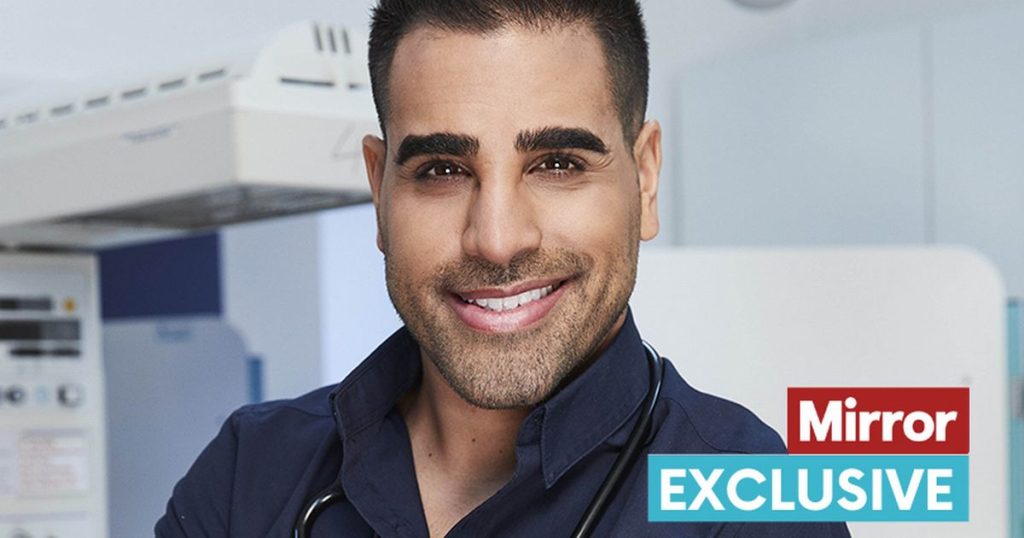BBC Morning Live’s Dr. Ranj Singh was paid £22,500 by AstraZeneca in 2021 for an advertising campaign, which he did not disclose to show executives when discussing the safety of the AZ Covid vaccine last week. This has caused controversy and raised conflict of interest concerns, as BBC has strict rules about disclosing significant financial interests related to one’s work or coverage. Dr. Ranj, who previously worked on ITV’s This Morning, spoke about the AZ vaccine and its complications on TV on May 8. The BBC addressed the issue on the show after facing questions about it, stating that Dr. Ranj had not been paid to talk about the Covid jab and has not worked with AstraZeneca since the advertising campaign.
The situation with Dr. Ranj has raised questions about transparency and potential conflicts of interest in the medical field. The failure to disclose financial ties to a pharmaceutical company while discussing their products can undermine trust in medical professionals and the information they provide to the public. It is essential for doctors and experts to maintain transparency and disclose any potential conflicts of interest to ensure the credibility of their advice and recommendations. The BBC’s response to the situation highlights the importance of adhering to strict conflict of interest rules and ensuring that financial interests are properly disclosed in discussions about medical products and treatments.
Dr. Ranj’s involvement in an advertising campaign for AstraZeneca raises concerns about the influence of pharmaceutical companies on medical professionals and public health information. The financial relationship between doctors and pharmaceutical companies can create conflicts of interest and raise questions about the impartiality of medical advice and recommendations. Transparency and disclosure of these relationships are crucial in maintaining the trust of the public and ensuring that medical professionals are acting in the best interests of patients rather than corporate sponsors. The controversy surrounding Dr. Ranj’s financial ties to AstraZeneca highlights the need for greater transparency and oversight in the medical field.
The issue with Dr. Ranj underscores the challenges faced by medical professionals in navigating relationships with pharmaceutical companies while maintaining ethical standards and providing accurate information to the public. The financial incentives offered by pharmaceutical companies can create conflicts of interest and potentially compromise the integrity of medical advice and recommendations. It is essential for doctors to carefully consider these relationships and ensure that they do not unduly influence their professional judgment or the information they provide to patients and the public. The situation with Dr. Ranj serves as a reminder of the importance of transparency and ethical conduct in the medical field.
The controversy surrounding Dr. Ranj’s financial ties to AstraZeneca has prompted a discussion about the need for greater transparency and oversight in the medical field. Doctors and medical professionals must carefully consider their relationships with pharmaceutical companies and ensure that they do not compromise their integrity or the quality of care they provide. Strict conflict of interest rules and disclosure requirements are necessary to prevent undue influence from corporate sponsors and maintain the trust of patients and the public. The situation with Dr. Ranj serves as a cautionary tale about the importance of transparency, ethics, and accountability in the medical profession.
In conclusion, the situation with Dr. Ranj and his financial ties to AstraZeneca raises important questions about transparency, conflicts of interest, and ethical conduct in the medical field. It highlights the need for doctors and medical professionals to carefully consider their relationships with pharmaceutical companies and ensure that they do not compromise their integrity or the quality of care they provide. Transparency, disclosure, and adherence to strict conflict of interest rules are essential in maintaining the trust of patients and the public and ensuring that medical advice and recommendations are based on sound judgment and ethical principles. The controversy surrounding Dr. Ranj serves as a reminder of the challenges faced by medical professionals in navigating these complex issues and the importance of upholding ethical standards in the delivery of healthcare services.


